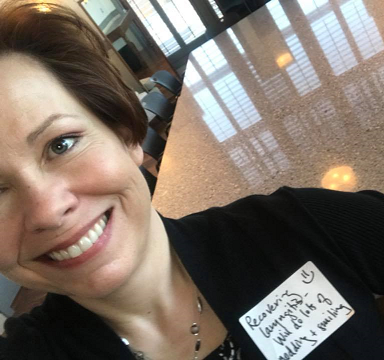When You Have No Voice
This past week I was diagnosed with laryngitis. Not croaky frog laryngitis, but Death Valley silent laryngitis. What feels like a whisper to me is mostly inaudible to everyone around me. Plus, according to all the websites and the doctor, whispering is actually harder on your vocal chords than talking is.
The prescription for my recovery? No talking. Like, as little as possible, which at this point is easy since none is possible. However, as you can imagine, I’ve realized how often I use my voice all the time, and how key it is to everyday life.
We don’t think about things like how much our small sounds contribute to conversation. For example, when you can’t say, “Uh-huh,” people don’t really know if you are listening. When you can’t say yes or no, they don’t know what your thoughts are. When you can’t speak into the phone, you can’t make a doctor’s appointment. All small stuff with big impact.
While this isn’t a permanent state for me, for many people it is. In my case, knowing this is short-term, I have been able to put this in perspective and both observe some things and well as remember things I need to be more aware of when my voice does return.
My first observation is people have been super kind to me. They’ve worked with me to help me communicate in any way they can, and they’ve adapted unconsciously in a variety of ways – some good, some simply funny ways. For example:
- Our neighbor kids whisper to me, even though they don’t need to. Because I’m quiet, they’re quiet in return.
- When I went into a store and wrote a question to the clerk, he started writing the response back, even though he could talk freely.
- And my favorite? A friend we carpool with suggested to his wife we may need different arrangement because in his head, for a brief moment, losing my voice impacted my driving.
On the flip side, I’ve observed that my condition is very awkward for some people. One store clerk talked only to my friend, who was serving as my voice and helping me with a project, even though he saw me hand her my question to ask him. It’s like I was lost in the equation somewhere, even though I was the purchaser. It wasn’t purposeful or mean, but it did happen. It was awkward for him to interact with me.
This brings me to what I need to remember to do more of when my voice returns. I need to make sure I intentionally include people who may have differing abilities in conversations. I need to make sure to make eye contact with folks in wheel chairs who aren’t at my eye height. I need to connect and intensely listen when someone is struggling to find words versus finishing their sentences.
I’m not hoping any of you becomes challenged physically in some way, as I have been, however, my experience has been a good reminder to be intentional about building relationship across all humankind.
Perhaps the experience of me losing my voice was to provide a voice for those we haven’t heard from in a while. Those folks who daily adapt to our normal when their normal looks different because of their circumstances. Perhaps it’s the reminder we all need to be intentional in building relationship and valuing everyone for all of who they are.
Whatever the reason, it’s my challenge for you this week – have a conversation with your co-workers or family about how to be intentional and what to do, so when the opportunity arises, we all benefit from the fullness of life we all bring to the table.
Keynote speaker, trainer, and consultant, Sarah Gibson, helps organizations leverage the power of communication, teamwork and diversity to improve engagement and transform teams. To buy her book or inquire about her speaking programs, please visit www.sarahjgibson.com.



